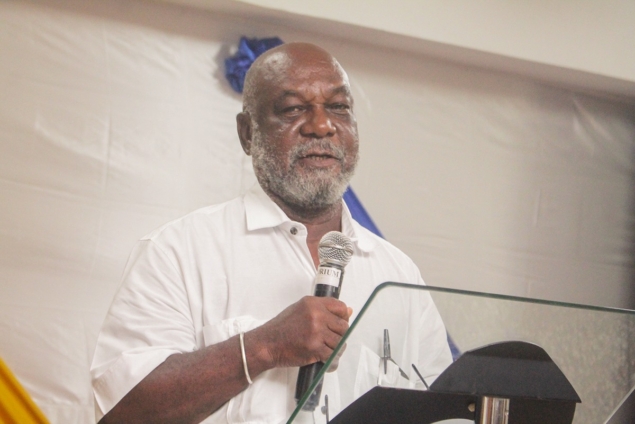Journalism Professor Kwame Karikari says the media has the right to exercise its discretion and blackout any newsmaker or public official whose actions are deemed disrespectful to the media profession.
According to him, the 1992 Constitution guarantees the independence of the media, describing it as offensive to the constitutional provisions should newsmakers, particularly, politicians assault a media practitioner.
Professor Karikari contended that if a public official, especially a minister, engages in behaviour that disrespects the principles of journalism and fails to rectify such actions, the media is well within its rights to impose a blackout.
He argued that this approach serves as a powerful tool for the media to protect its integrity and uphold journalistic standards.
"For a minister to behave like that to any sector of the media and without rectifying that action, then the politician deserves to be simply blacked out," Professor Karikari said on JoyNews' PM Express on Monday.
He drew attention to the fact that in the current media landscape, politicians can boycott specific media houses and not invite certain media teams to their programmes. Therefore, he argued, the media should also have the right to reciprocate such actions.
Last two weeks, the Ghana Journalists Association (GJA) imposed a total media blackout on the Fisheries and Aquaculture Development Minister, Mavis Hawa Koomson.
The GJA directed journalists to avoid covering any activities involving the Awutu Senya East MP following an attack on a journalist allegedly by the MP's thugs during the NPP’s parliamentary aspirants’ vetting in Cape Coast.
The Yendi MP, Farouk Aliu Mahama, has also been included in this total blackout after he was reported to have assaulted a Citi FM reporter during the NPP Parliamentary elections.
Although some have criticised the strategy as one which is not in the public interest, Prof Karikari clarified that while media blackout of key institutions like Parliament and the Presidency would be highly inappropriate, individual politicians who engage in disrespectful behavior towards the media should face the consequences of being blacked out.
"When you assault a journalist, you are telling the media 'We don’t want you,' so what business does the media have rendering a service that you claim you do not want? So for me, the media blacking out anyone is within their right."
On the same show, the Information Minister, Kojo Oppong Nkrumah urged the GJA to ensure that thorough investigations are carried out before the blackout policy is implemented.
He noted that although the directive is a laudable one, it can be abused if left unchecked.
Latest Stories
-
Investigators find cockpit voice recorder from crashed Air India flight
5 minutes -
Club World Cup: Delap makes debut as Chelsea win in front of empty seats
16 minutes -
Retirement age of 70 is fine – Justice Adjei
18 minutes -
Chris Brown jokes about ‘nice’ jail as he starts UK tour
29 minutes -
Juror dismissed in Diddy trial over ‘inconsistencies’
39 minutes -
Don’t allow Executive or Legislature to encroach on judicial independence – Justice Adjei
2 hours -
Bibiani Goldstars crowned champions, squad rewarded by betPawa in bonus payout
2 hours -
Capping Supreme Court judges won’t be helpful – Justice Suurbaareh
2 hours -
Mahama is Ghana’s most prepared President – Gabby Otchere-Darko
2 hours -
Samer Chedid succeeds Mauricio Alarcón as CEO of Nestlé Central and West Africa
2 hours -
Stephen Ntim takes temporary break as NPP Chairman due to health concerns
3 hours -
Abolish ‘Additional Judge’ practice in lower courts – Justice Dennis Adjei urges
3 hours -
District assembly elections are already partisan – Sir Dennis Adjei urges reform
4 hours -
Africa World Airlines reschedules Accra–Ouagadougou route launch to 1st July
4 hours -
Mahama vows to reignite dream of Bukom Boxing Academy
4 hours

